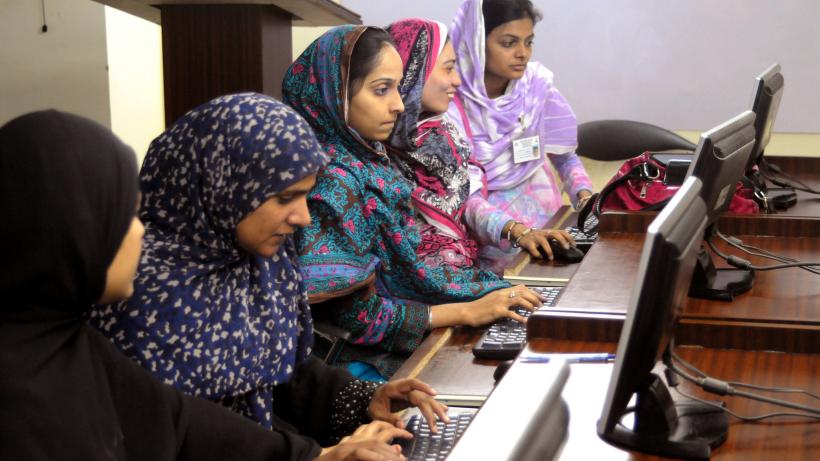Firm growth and information frictions in the market for skills
This study is motivated by two major challenges confronting low-income countries: Rising unemployment and underemployment, and low productivity and growth in firms. An important reason for this is information frictions in the labour market that affect both firms and work-seekers. On the demand side, firms may have limited information about the skills of workers when they are hiring, leading to suboptimal work-seeker matches for jobs. This generates low output and low earnings for firms. On the supply side, work-seekers may have limited information about the skills demanded by firms and are therefore unable to invest in those skills. This mismatch in skills results in lower outputs produced by workers.
The proposed intervention aims to address this challenge by reducing information frictions between firms and workers. This is done by offering firms better information about the skills of prospective workers and offering work-seekers better information about the skills demanded by firms. The existing research does not identify the effects of better information on firms, treats work-seekers' skills as fixed, and relies on lower-frequency surveys to measure job posting and job search. As such, this study is a unique contribution to the literature on labour markets.
This study will be done in collaboration with the Punjab Commission on the Status of Women (PCSW), a government agency focused on the advancement of women in Pakistan’s largest province. PCSW has engaged Centre for Economic Research Pakistan to implement and evaluate a large-scale pilot project to facilitate female employment. The researchers are developing training, mentorship, and matching interventions for this project, which can easily be leveraged for research. The findings will directly inform and influence the scaling of this project in Punjab. In addition, the results are also relevant to policymakers in the education and labour sectors in developing countries.
To implement the research, a series of interventions in the labour market of Lahore, Pakistan, will be piloted through an innovative matching platform, called ‘Job Talash.’ Developed by the researchers, Job Talash allows firms to post jobs and work-seekers to apply for jobs, allowing observation of detailed, real-time data on job posting, job search, and job matching.




